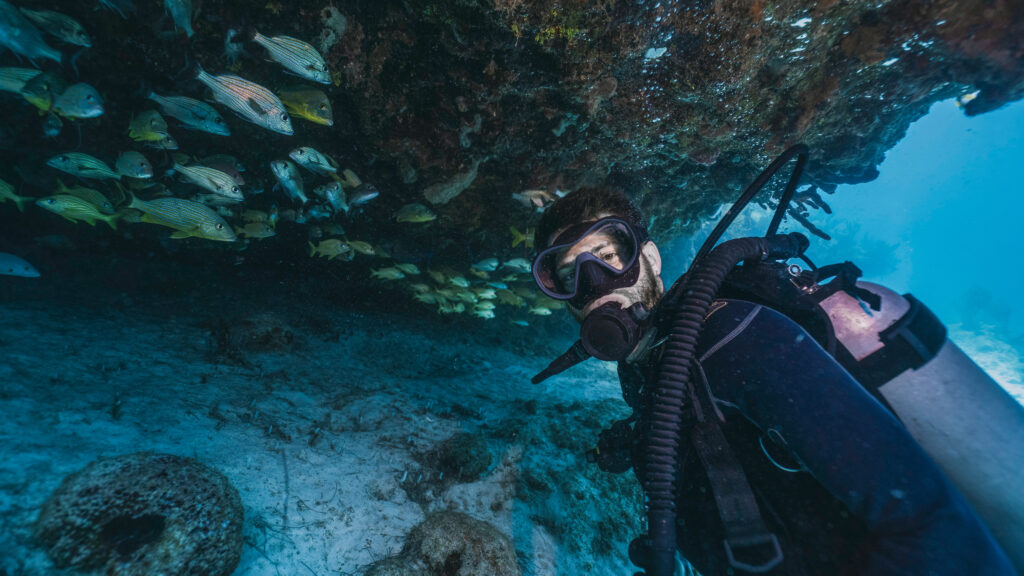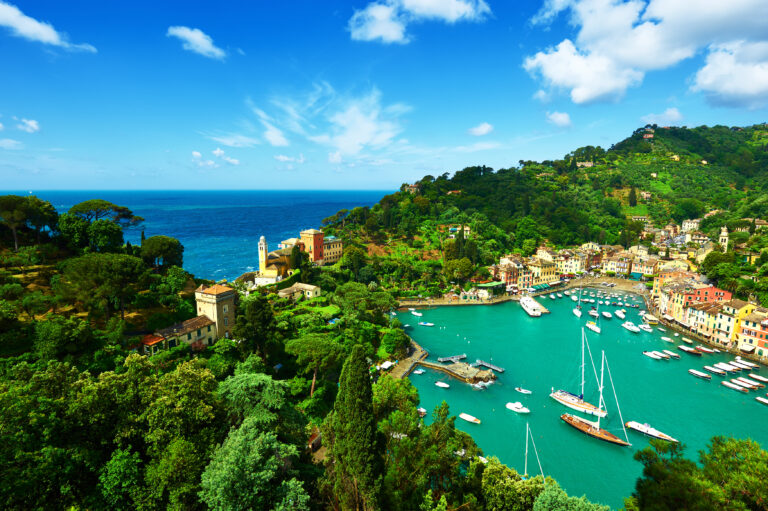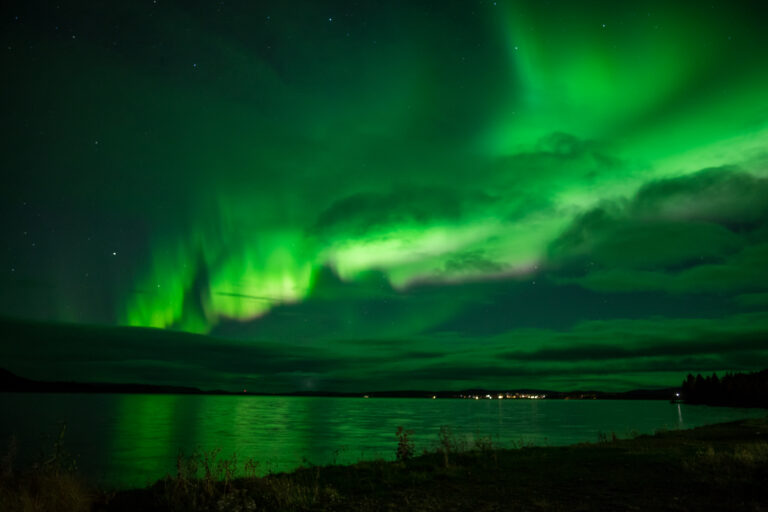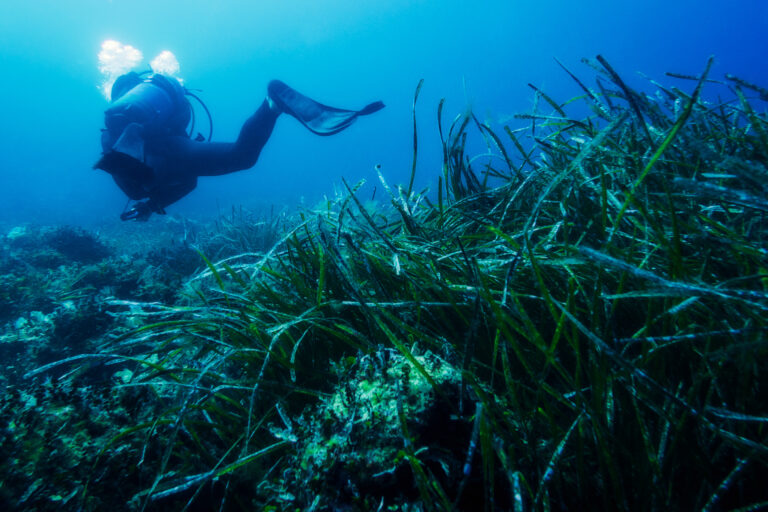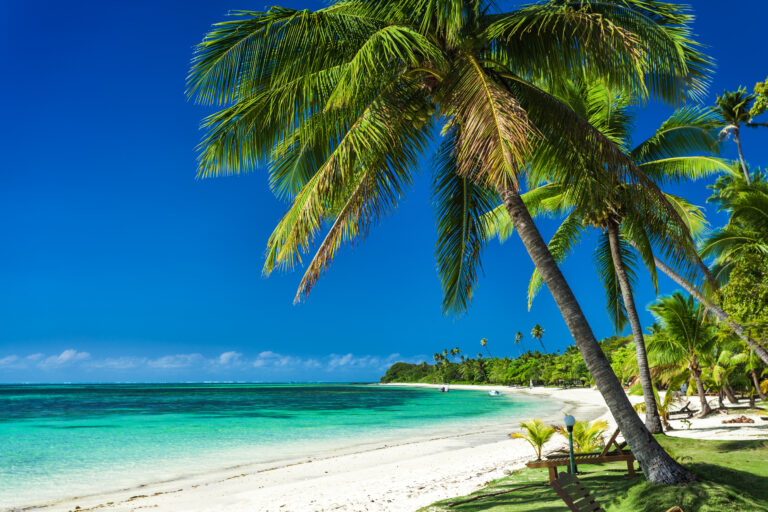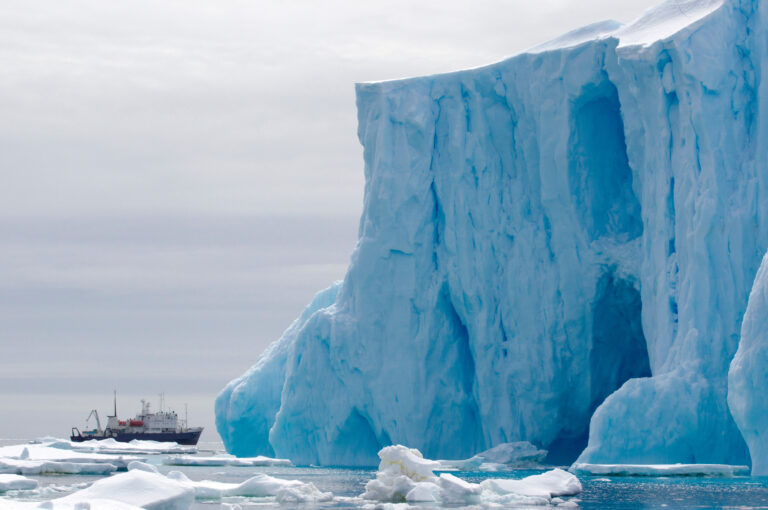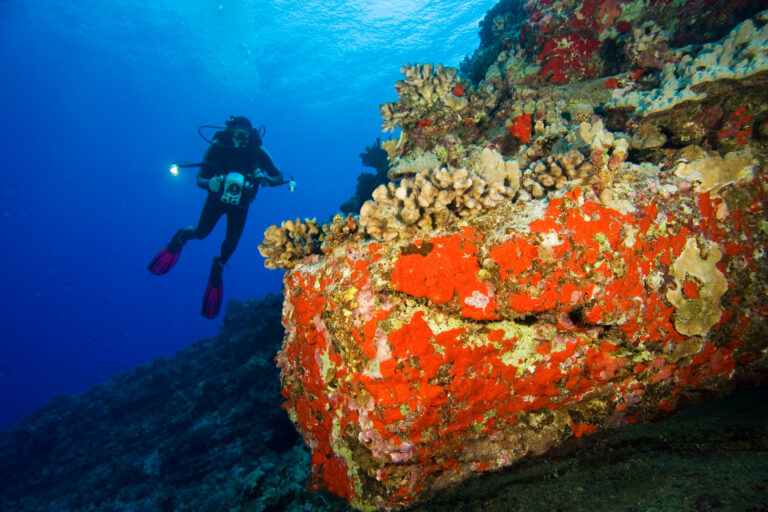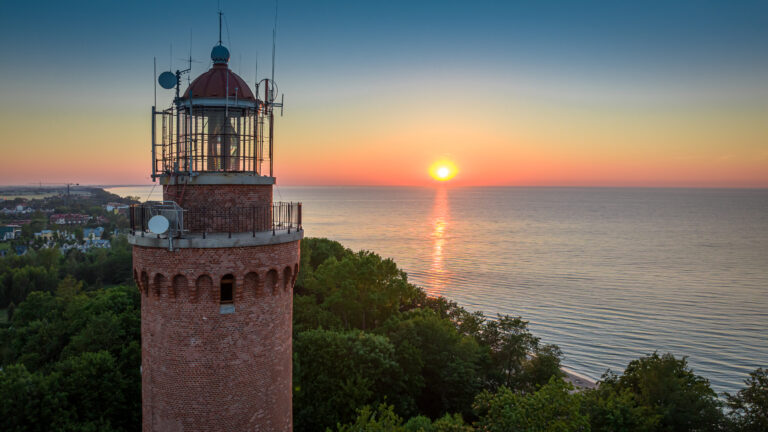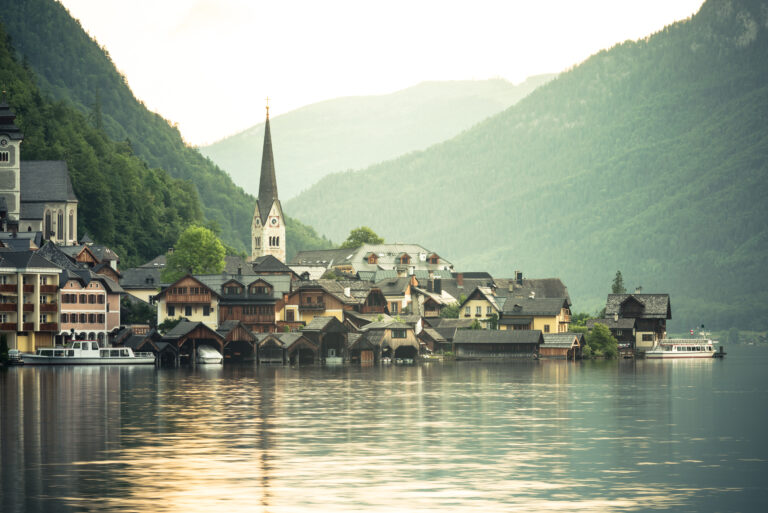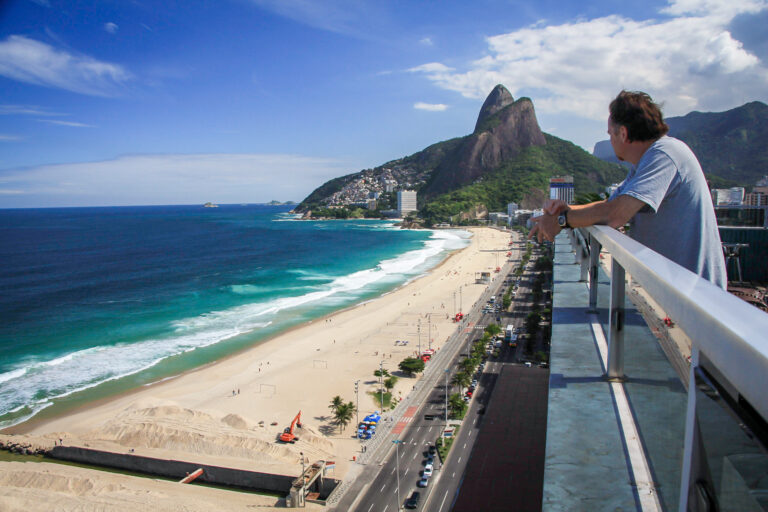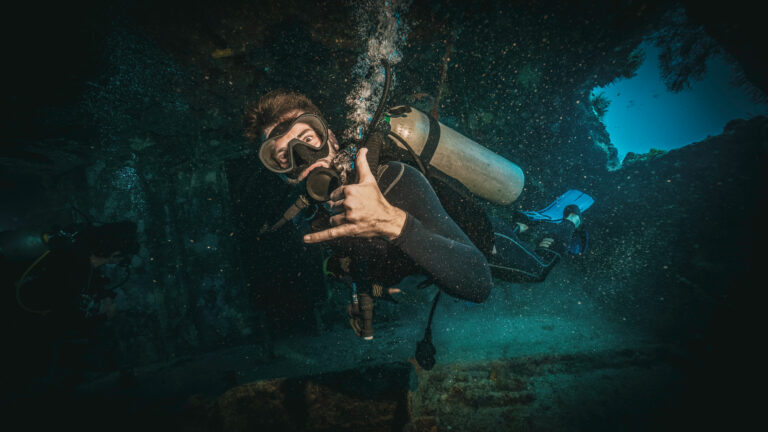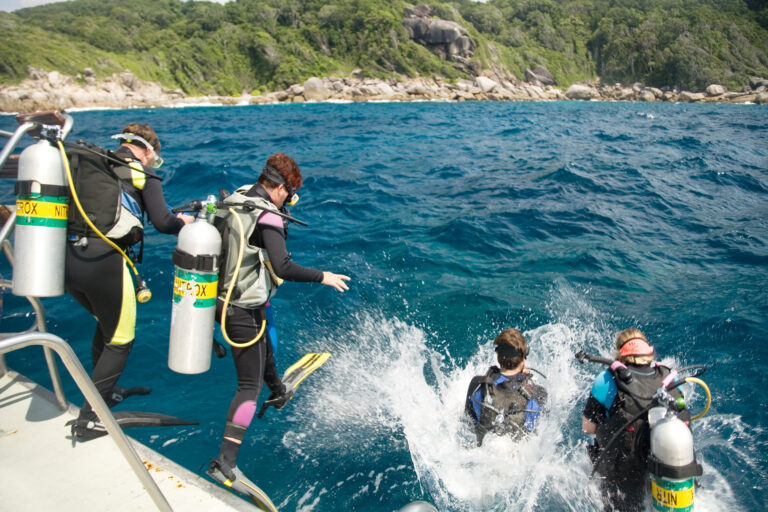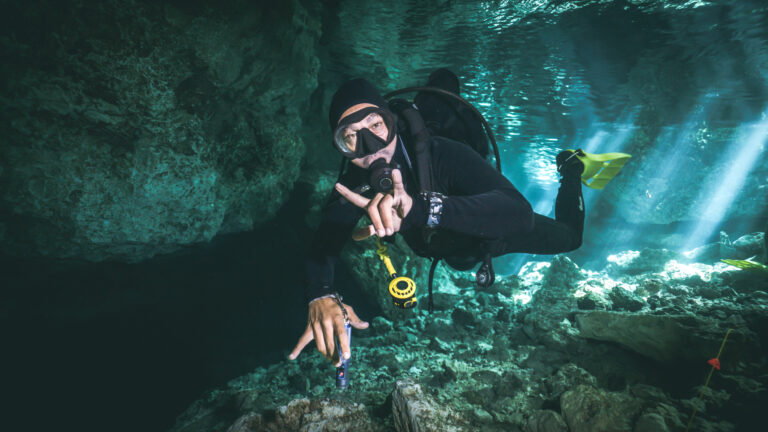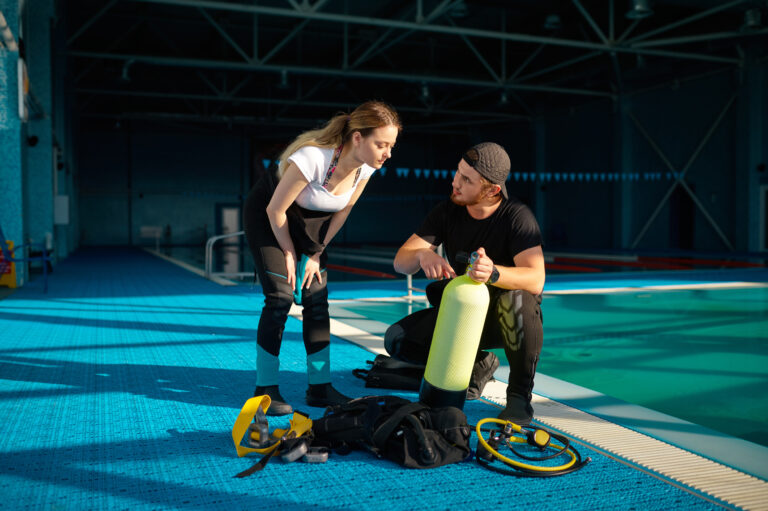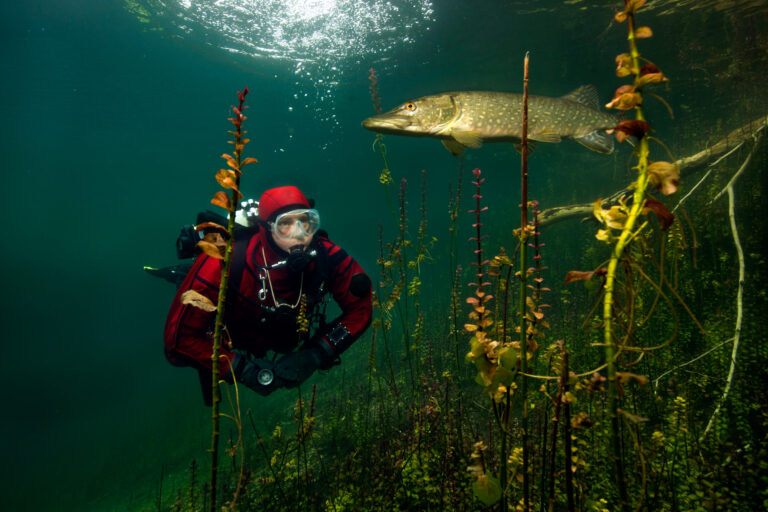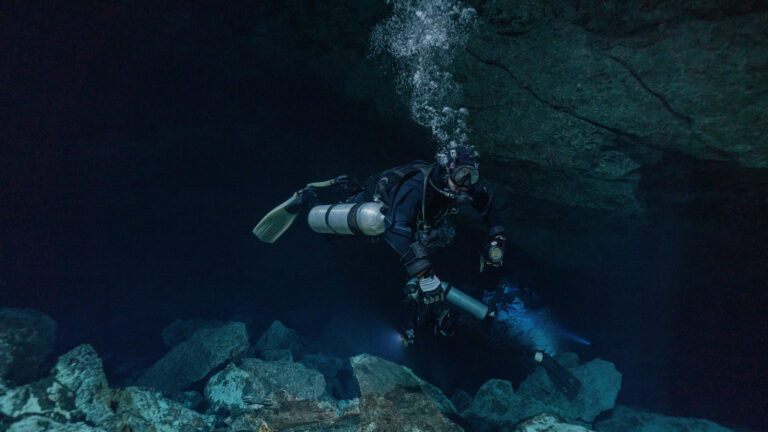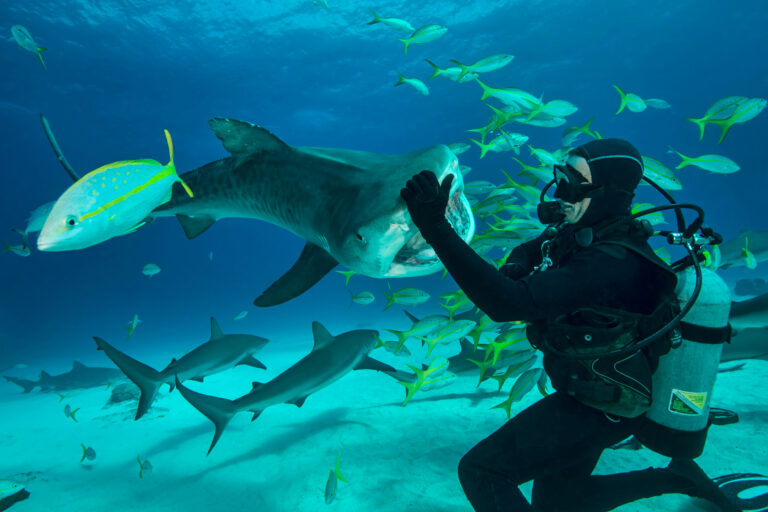SCUBA DIVERS’ TRAVEL GUIDE TO Albania
If you’re looking for a scuba diving destination that offers crystal-clear waters, stunning underwater scenery, and a rich history, look no further than Albania. This small country in southeastern Europe is a hidden gem for divers who want to explore the wonders of the Adriatic and Ionian seas. Albania has a variety of dive sites to suit all levels of experience, from wrecks and caves to reefs and walls. You can dive into the past and discover the sunken ships that were intentionally sunk by the Albanian government to create an underwater park for divers to explore the history of communism. You can also marvel at the diverse marine life that inhabits the rocky formations and colorful corals of Hunda e Mërtesë and Hunda e Kuqe. Whether you’re a beginner or an expert, Albania will surprise you with its beauty and charm. Albania is a scuba diving destination that you don’t want to miss!
LOCATION AND GEOGRAPHY
Nestled along the picturesque Adriatic Sea in Southeastern Europe, Albania is a hidden gem for scuba diving enthusiasts seeking unspoiled underwater landscapes. The country’s coastline stretches over 450 kilometers, offering a diverse range of diving experiences from the alluring Karaburun Peninsula to the historically rich waters near Sarandë, where ancient artifacts lie beneath the waves. The geography of Albania’s underwater terrain is as varied as its land, featuring rocky outcrops, caverns, and canyons that host a medley of marine life. The Ionian Sea kisses the southwestern shores, providing warmer waters and visibility that can exceed 30 meters during the right conditions. Notably, the country’s relatively recent opening to tourism means many of its dive sites are pristine and uncrowded, offering a sense of discovery and adventure to those who plunge beneath its waves. Whether exploring the remnants of sunken ships or the natural beauty of Albania’s aquatic ecosystems, divers are sure to be captivated by the unique blend of history and natural splendor found in Albania’s underwater geography.
VISA AND ENTRY REQUIREMENTS
Before planning your underwater adventure to explore the alluring Adriatic and Ionian seas off the coast of Albania, it is essential to understand the visa and entry requirements for this hidden gem of Europe. As of the current guidelines, many nationalities, including citizens of the EU, the US, and Canada, can enter Albania visa-free for up to 90 days within a 180-day period for tourism purposes, which comfortably accommodates an extended scuba diving trip. However, it is always prudent to check the latest information from the Albanian Ministry of Foreign Affairs or the nearest Albanian embassy, as regulations can change. Ensure your passport is valid for at least six months beyond your period of stay. Upon arrival, you’ll be asked to provide proof of sufficient funds for your stay and a return ticket or onward travel documentation. Once the formalities are taken care of, the Albanian coast, with its rich marine life, shipwrecks, and stunning underwater landscapes, awaits your discovery.
GETTING TO Albania
Getting to Albania for an unforgettable scuba diving adventure is a journey that promises both ease and excitement. Nestled on the Balkan Peninsula with its stunning Adriatic and Ionian coastlines, Albania is accessible by air, with the Tirana International Airport Nënë Tereza being the main gateway for international travelers. Major airlines offer flights from European hubs, and there are seasonal charters that cater to tourists during peak diving months. For those exploring Europe by land or sea, Albania is well-connected by bus routes from neighboring countries and by ferries from Italy and Greece, which dock in the ports of Saranda, Vlorë, and Durrës. Upon arrival, the country’s relatively compact size allows for convenient travel to various coastal dive sites, either by car rental or through local tour operators who often provide transport as part of their dive packages. With its rich history, warm Mediterranean climate, and burgeoning tourism infrastructure, Albania is becoming an increasingly popular destination for divers seeking new underwater experiences in the heart of the Mediterranean.
BEST TIME TO DIVE
The best time to scuba dive in Albania is during the late spring through early autumn months, from May to October, when the Adriatic Sea is at its warmest and the underwater visibility is at its peak. During this period, water temperatures range comfortably between 18°C to 25°C (64°F to 77°F), allowing divers to enjoy extended dives with minimal thermal protection. The summer months of July and August are particularly popular, offering the most reliable weather conditions and the opportunity to explore Albania’s underwater treasures, such as WWII wrecks, in the best possible light. However, for those looking to avoid the crowds and potentially enjoy more serene dive sites, the shoulder months of May, June, and September provide a quieter yet equally rewarding experience. It’s worth noting that outside of this prime season, diving is still possible, but the cooler water temperatures and less predictable weather may require thicker wetsuits or drysuits for comfort.
ACCOMMODATION OPTIONS
Albania, a hidden gem nestled on the Adriatic and Ionian Seas, offers a range of accommodation options for scuba divers looking to explore its underwater treasures. In the coastal city of Saranda, divers can find a variety of beachfront hotels and resorts that cater to their needs, providing gear storage and easy access to dive shops and boat tours. For a more intimate experience, the charming town of Himara boasts family-run guesthouses and boutique hotels, where personalized service is the norm, and local dive sites are just a stone’s throw away. In the secluded bays of the Karaburun Peninsula, divers can opt for eco-friendly campsites and bungalows that allow for a closer connection with nature, while still being within reach of spectacular dive spots. Whether you’re seeking luxury or simplicity, Albania’s accommodations are as diverse as its marine life, ensuring a comfortable stay for underwater adventurers of all tastes.
DIVE OPERATORS AND DIVE SHOPS
Albania, a hidden gem nestled on the Balkan Peninsula, offers a unique underwater experience for divers seeking to explore less-traveled waters. The country’s dive operators and shops, primarily located along the picturesque Adriatic coast, provide personalized service that caters to both novice and experienced divers. In cities like Saranda and Vlorë, divers can find well-equipped dive shops such as Albania Diving in Saranda or Dive Albania in Vlorë, offering a range of services from PADI certification courses to guided dives exploring sunken ships, intriguing caves, and vibrant marine life. The dive operators in Albania are known for their intimate knowledge of the local dive sites, ensuring a safe and memorable experience. They often emphasize the preservation of the marine environment, integrating eco-friendly practices into their operations. With the warm hospitality of the local dive community, visitors are sure to feel welcomed and enthralled by the underwater treasures of Albania.
TRANSPORTATION WITHIN Albania
In Albania, transportation options to reach the country’s prime scuba diving spots are varied and cater to different preferences and budgets. The most common mode of transport is by road, with car rentals readily available at airports and major cities for those who prefer the freedom to explore at their own pace. For a more local experience, intercity buses and furgons (minibuses) are an affordable and authentic way to travel between towns and coastal areas, though schedules can be less reliable. Coastal cities like Saranda and Vlorë, gateways to underwater adventures, are also accessible by ferry services from Corfu and Italy, offering a scenic approach to your diving destination. For the ultimate convenience, especially when hauling diving gear, consider hiring a taxi or arranging a private transfer through your accommodation or a local dive shop. While Albania’s transportation infrastructure is improving, it’s wise to plan ahead and allow extra time for travel, particularly during the peak summer season when services can be busier.
CURRENCY AND PAYMENT METHODS
When traveling to Albania for scuba diving adventures, it’s important to note that the official currency is the Albanian lek (ALL). While major cities and tourist areas may accept credit cards, it’s advisable to carry cash, especially when visiting more remote dive sites or local markets. ATMs are widely available in urban centers, but less so in secluded areas. Foreign currency can be exchanged at banks, hotels, and licensed exchange offices, but ensure you receive a receipt for your transaction. It’s also worth mentioning that while euros are commonly accepted in many tourist-oriented businesses, the exchange rate may not be as favorable as at a bank. Always have a mix of payment methods and ensure you have enough lek for small purchases, tips, and transportation to and from dive locations. Keep in mind that bargaining is customary in local markets, so having cash on hand can give you an edge in negotiating prices for souvenirs and local goods.
LANGUAGE AND COMMUNICATION
When diving in Albania, communication both above and below the surface is predominantly conducted in Albanian, the official language of the country. However, due to the increasing popularity of Albania as a scuba diving destination, English is commonly spoken within the diving community, especially by instructors and guides at dive centers catering to international tourists. It is advisable for divers to familiarize themselves with basic Albanian phrases for courtesy and to enhance their travel experience, but essential dive-related communication, such as safety procedures and dive briefings, are often available in English and other major European languages. Underwater, divers use the standard hand signals recognized internationally to convey messages and ensure safety. It’s also beneficial to learn a few dive-specific terms in Albanian to bridge any potential language gaps with local divers and boat crews, fostering a more inclusive and enjoyable experience in Albania’s underwater landscapes.
LOCAL CULTURE AND ATTRACTIONS
Albania, a hidden gem nestled on the Balkan Peninsula, offers a rich tapestry of cultural experiences and attractions that complement its burgeoning scuba diving scene. Above the surface, visitors are enchanted by the country’s storied past, reflected in the UNESCO World Heritage sites of Butrint and Gjirokastër, where ancient ruins whisper tales of bygone civilizations. The vibrant capital, Tirana, pulses with life, showcasing a mosaic of Ottoman, Fascist, and Soviet-era architecture, while the National Historical Museum provides a deep dive into Albania’s diverse heritage. Traditional folk music and dance, particularly the captivating performances of the Saze, echo through the cobblestone streets of Berat, the ‘City of a Thousand Windows’. After a day spent exploring underwater wonders, divers can indulge in the local cuisine, savoring dishes like byrek or fresh seafood, and perhaps even partake in a glass of raki with hospitable locals. From the sun-drenched beaches of the Albanian Riviera to the quaint mountain villages that dot the rugged landscape, Albania’s cultural and natural attractions offer a rich, immersive experience that perfectly complements the adventure found beneath its waves.
CULTURAL ETIQUETTE AND TIPS
When scuba diving in Albania, it’s important to approach the experience with cultural sensitivity and respect for local customs. Albanians are known for their warm hospitality, and it’s customary to greet them with a friendly “Përshëndetje” (hello). When engaging with local dive operators or fishermen, showing interest in their work and a bit of gratitude for their knowledge of the sea can go a long way. Be mindful of environmental practices; while Albania’s coastlines are stunning, they are also home to delicate ecosystems. Avoid touching or taking marine life, and be sure to follow all guidelines provided by your dive operator. It’s also wise to dress modestly when not on the beach or at a dive site, as Albania is a country with strong traditions. Lastly, tipping is appreciated but not mandatory; however, offering a small gratuity to your dive guides or boat crew is a kind gesture that acknowledges their service and expertise.
LOCAL LAWS AND REGULATIONS RELEVANT TO TOURISTS
When planning a scuba diving trip to Albania, it is crucial for tourists to familiarize themselves with the local laws and regulations to ensure a safe and lawful experience. Albania requires all divers to be certified and to dive with a licensed local dive operator. The country has established Marine Protected Areas (MPAs), where specific rules apply, including restrictions on fishing, anchoring, and collecting marine life, to preserve biodiversity. Diving in archaeological sites, many of which are underwater due to the country’s rich history, is strictly regulated and often requires special permits. Additionally, divers should be aware that some coastal military zones may be off-limits and that diving near ports, harbors, and military installations without prior authorization is prohibited. It is also important to respect local customs and environmental guidelines, such as not touching or feeding marine wildlife. Tourists are advised to check with their chosen dive center for the most current information on regulations and to obtain any necessary permits or additional information before diving.
SAFETY TIPS AND EMERGENCY CONTACTS
When diving in the enchanting waters of Albania, safety should be your paramount concern. Always dive within your certification limits and ensure that your equipment is well-maintained and appropriate for the conditions. Due to the presence of underwater relics and varying sea conditions, it’s advisable to dive with a local guide who knows the terrain and can navigate safely around historical sites. Before embarking on your underwater adventure, familiarize yourself with the local emergency procedures and ensure that you have access to up-to-date emergency contact information. The nearest decompression chamber is located in Greece, so it’s crucial to have comprehensive dive insurance that covers medical evacuation. In case of an emergency, contact the Albanian emergency services at 127 for immediate assistance. Additionally, keep the contact details of your country’s embassy or consulate handy, as they can be a valuable resource in a crisis. Remember, the key to a successful dive trip is preparation, so take the time to plan for safety and you’ll be free to enjoy the stunning underwater landscapes that Albania has to offer.
HEALTH AND TRAVEL INSURANCE
Before embarking on your underwater adventure in Albania, a country with a burgeoning reputation for its unspoiled dive sites and rich marine life, it is crucial to secure comprehensive health and travel insurance that covers scuba diving activities. Albania’s healthcare facilities may not always meet the standards you’re accustomed to, and in the event of a diving mishap or medical emergency, access to hyperbaric chambers or medical evacuation can be both logistically complex and expensive. Ensure that your insurance policy includes coverage for dive-related injuries, emergency repatriation, and hyperbaric treatment. It’s also wise to check if your policy requires you to notify the insurer before engaging in scuba diving, as some may have specific conditions or exclusions. With the right insurance in place, you can explore Albania’s underwater treasures, such as the sunken WWII ships off Saranda or the vibrant sea life of the Karaburun Peninsula, with peace of mind.

